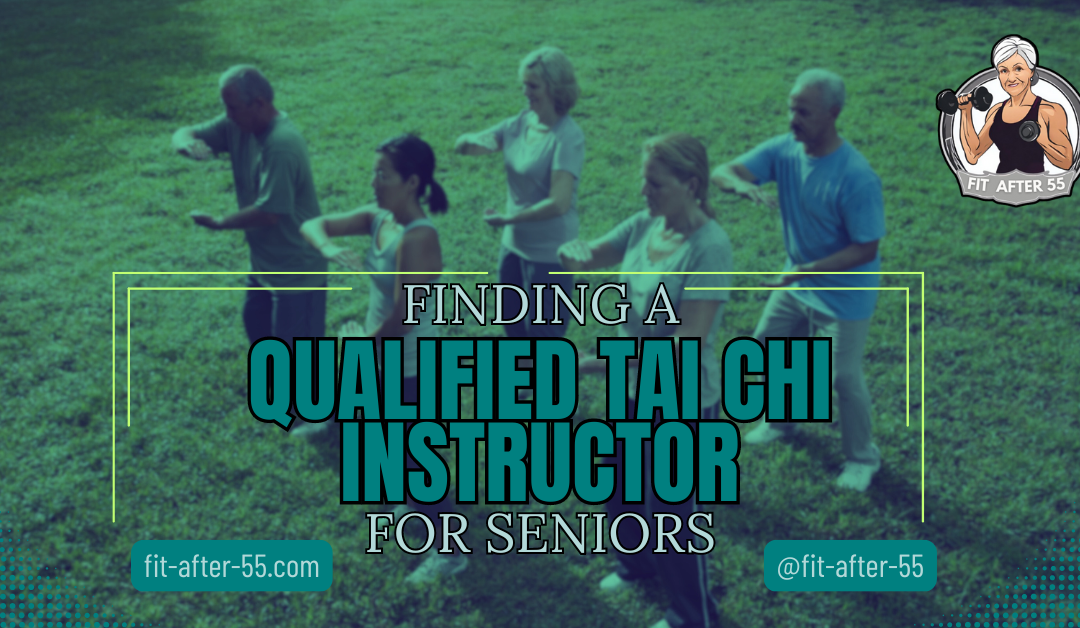Finding a qualified Tai Chi instructor for seniors is essential for improving their physical health and mental clarity through this gentle practice. As the movements flow seamlessly, they offer a serene path to enhanced well-being. Still, locating an instructor can feel daunting, especially when looking for someone who understands the unique needs of older adults.
With the proper guidance, Tai Chi can be more than just an exercise; it can transform into a fulfilling practice that promotes balance, flexibility, and relaxation. This article will explore essential tips for identifying an instructor who possesses the expertise and creates a welcoming environment for seniors, ensuring a safe and enriching experience for all.
Tai Chi Instructor for Seniors: Your Guide to Gentle Exercise
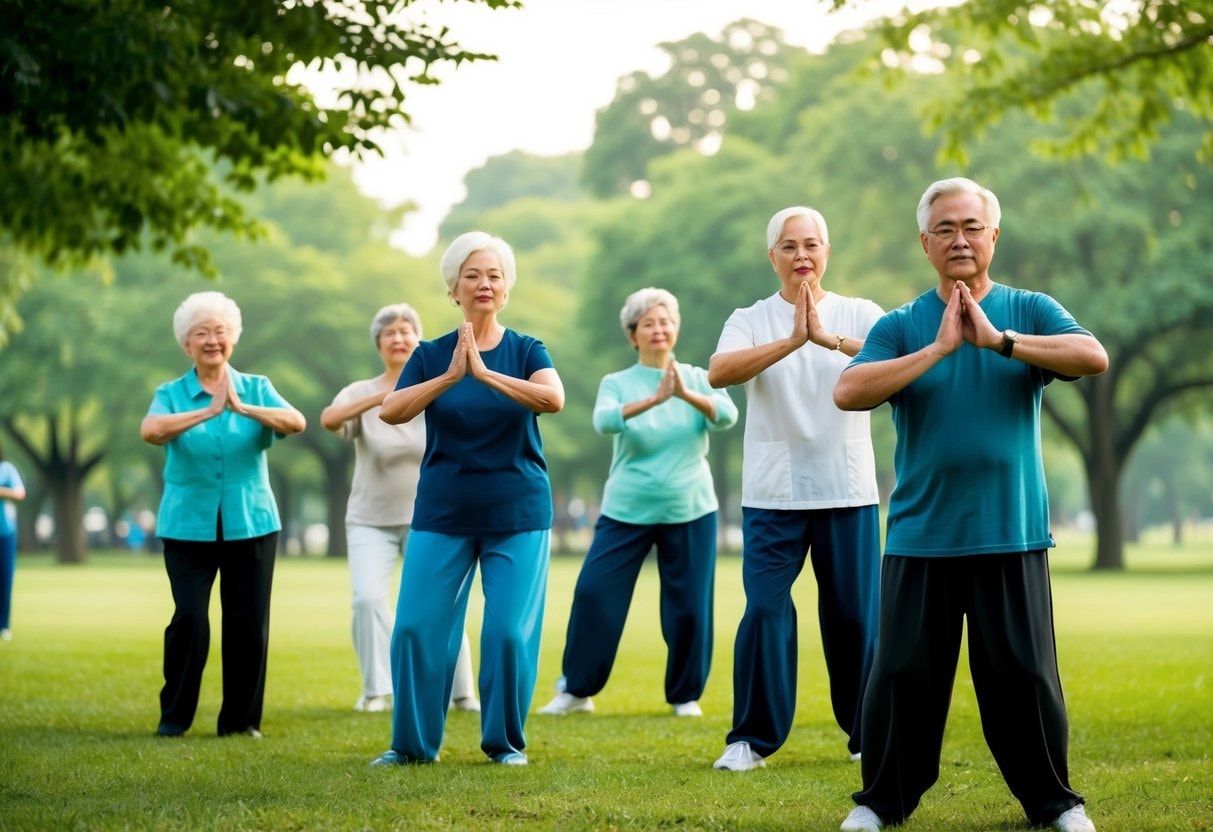
Tai Chi offers many health benefits for seniors. It can help improve balance, flexibility, and strength. However, finding a qualified tai chi instructor for seniors is essential to get the most out of this ancient practice. A qualified Tai Chi instructor can guide you safely through the movements and help you avoid injury. Finding a qualified Tai Chi instructor is key to your success. Look for someone with experience teaching older adults. They should understand the unique needs of seniors and be able to adapt the practice as needed.
A good instructor will create a welcoming environment where you feel comfortable learning at your own pace. When choosing an instructor, ask about their training and certification. Many reputable organizations offer Tai Chi instructor certification programs. Don’t be shy about asking questions or observing a class before you join. The right instructor can make your Tai Chi journey enjoyable and rewarding.
Key Takeaways
- A good Tai Chi instructor ensures safe and effective practice for seniors.
- Look for instructors with experience teaching older adults and proper certification.
- The right instructor can help you enjoy Tai Chi’s many health benefits.
The Many Benefits of Tai Chi for Seniors
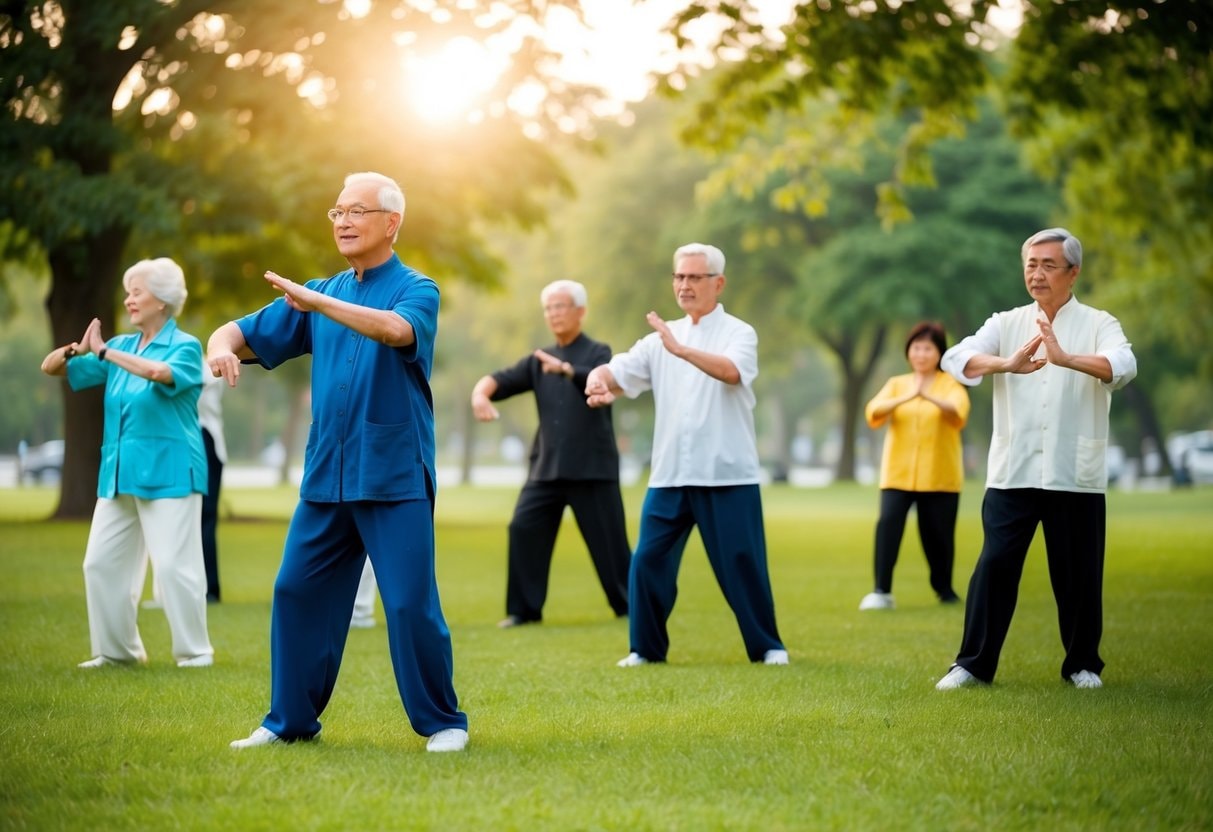
Tai Chi offers a wide range of health benefits for older adults, making finding a qualified Tai Chi instructor for seniors essential. This gentle, low-impact exercise can improve your physical and mental well-being in many ways.
Promoting Better Balance and Reducing Fall Risk
Tai chi can help you stay steady on your feet. It teaches you to be more aware of your body and how you move. This can make a big difference in preventing falls. As you practice tai chi, you’ll learn to shift your weight smoothly from one foot to another. This helps train your balance and makes your legs stronger.
You’ll also work on your posture, which is key for good balance. Many seniors find that after doing tai chi for a while, they feel more confident walking and moving around. This can help you stay active and independent for longer.
Cognitive Health and Mental Well-Being
Tai chi isn’t just good for your body – it’s great for your mind, too! The slow, focused movements can help you feel calmer and less stressed. Many people say tai chi helps them sleep better at night. When you do tai chi, you need to concentrate on your movements and breathing.
This can improve your focus and memory. Some studies suggest that tai chi may help cognitive function as you age. Tai chi classes are also a great way to meet new people. Being social is essential for your mental health, especially as you age.
Enhancing Physical Capabilities
Tai chi is a gentle way to boost your overall fitness. It can help improve your:
- Strength.
- Flexibility.
- Stamina.
Even though the movements are slow, tai chi gives your muscles a good workout. It’s especially good for your legs and core. As you get stronger, you might find everyday tasks easier to do. Tai chi also helps you become more flexible. This can make it easier to reach things and move around. Plus, the deep breathing in tai chi is great for your lungs.
Tai Chi for Specific Health Conditions
If you have health issues, tai chi can help. It’s been shown to be helpful for people with:
- Arthritis: The gentle movements can ease joint pain and stiffness.
- Heart Problems: Tai Chi can improve cardiovascular health.
- Chronic Pain: Many people find tai chi helps manage their pain.
Tai chi is also good for your immune system. This might help you fight off colds and other illnesses better. Remember, talking to your doctor before starting any new exercise program is always a good idea. They can help you decide if tai chi is right for you.
Understanding Tai Chi and Its Roots
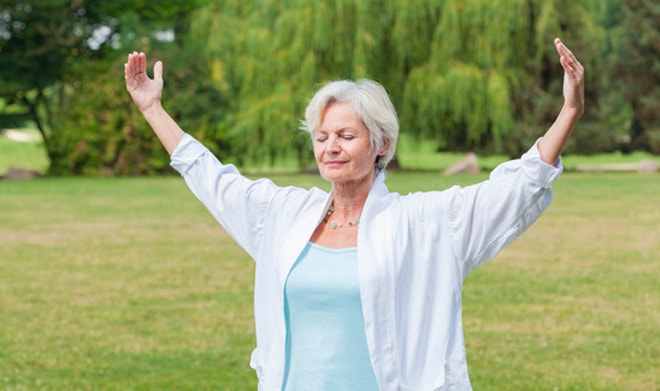
Tai Chi is an ancient Chinese practice that combines slow, gentle movements with deep breathing and meditation. Finding a qualified Tai Chi instructor for seniors is essential to ensure a safe and practical experience. This practice offers many benefits for seniors, including improved balance, flexibility, and stress relief.
Exploring Tai Chi Movements
Tai Chi movements are slow, fluid, and continuous. You’ll learn to shift your weight smoothly from one leg to another while keeping your body relaxed. Some common moves include:
- “Parting the Wild Horse’s Mane”
- “Grasping the Sparrow’s Tail”
- “White Crane Spreads Its Wings”
These movements help improve balance and coordination and strengthen legs and core muscles. As you practice, you’ll focus on your breath and the qi (energy) flow through your body.
Different Styles and Forms
There are several Tai Chi styles, each with its unique features:
- Yang Style: The most popular, known for its slow, graceful movements.
- Chen Style: The oldest form, featuring both slow and fast movements.
- Wu Style: Emphasizes small, compact movements.
- Sun Style: Combines Tai Chi with qigong, great for beginners.
You can choose a style that suits your fitness level and goals. Many seniors prefer the Yang or Sun styles for their gentler approach.
The Philosophy Behind Tai Chi
Tai Chi is more than just exercise – it’s a way of life. The practice is rooted in Taoist philosophy, emphasizing harmony with nature and balance. As you practice Tai Chi, you’ll learn to:
- Be present in the moment.
- Find a balance between yin and yang energies.
- Cultivate inner peace and calmness.
This mind-body connection can help reduce stress and improve your overall well-being. Many seniors find Tai Chi becomes a path to harmony and health in their daily lives.
Did you Know?
You can start by checking local senior centers or community centers. Many offer Tai Chi classes for older adults. You can also ask your doctor for recommendations. Another option is to search online directories of qualified Tai Chi instructors. These often list teachers who have experience working with seniors.
Finding A Qualified Tai Chi Instructor For Seniors: Selecting a Tai Chi Instructor
Finding the right Tai Chi instructor is key to Finding A Qualified Tai Chi Instructor For Seniors and getting the most out of your practice. A good teacher will help you learn proper form and stay safe while you enjoy the benefits of Tai Chi.
Qualifications to Look For
When picking a Tai Chi instructor, check for proper training and certification. Look for teachers certified by reputable organizations like the Tai Chi for Health Institute. These instructors have completed special training to teach safely and effectively. Ask about their background in Tai Chi.
How long have they practiced? What style do they teach? Make sure they know how to adapt moves for seniors. It would also be good if they understood the health benefits of Tai Chi. Can they explain how it helps with balance, strength, and mindfulness?
Assessing the Learning Environment
Visit a class to see how the instructor teaches. Is the pace right for you? Do they give clear instructions? Check if the space is safe for seniors. Is it well-lit? Is the floor non-slip? Is there enough room to move? Ask about class size. Smaller groups often mean more personal attention.
This can be helpful when you’re learning new moves. See if they offer different class levels. You should start with a beginners’ class and move up as you improve.
Instructor’s Experience with Seniors
A good Tai Chi instructor for seniors should have experience teaching older adults and know how to adapt movements for different abilities. Ask if they can work with common health issues in seniors. Can they modify exercises for those with arthritis or balance problems? See if they focus on gentle movements and take things slow. Tai Chi shouldn’t be rushed, especially for beginners.
Check if they teach mindfulness along with the physical moves. This can help you get the full benefits of Tai Chi. Look for an instructor who encourages questions and gives individual help when needed. They should make you feel comfortable and supported in your practice.
Incorporating Tai Chi into Daily Life
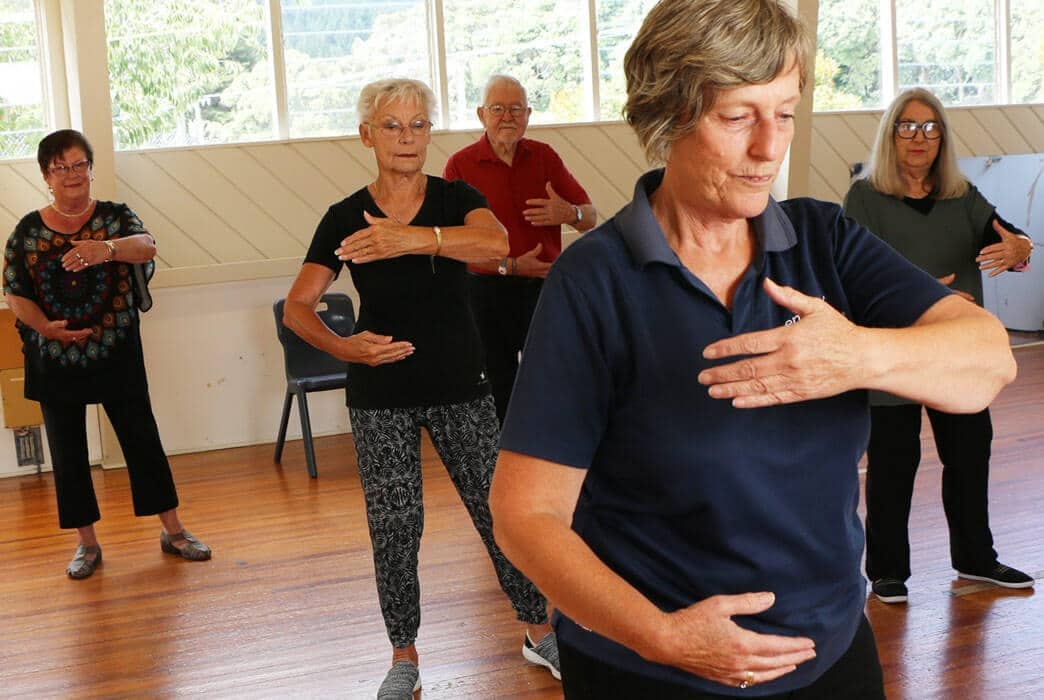
Finding A Qualified Tai Chi Instructor For Seniors can help make Tai Chi a valuable part of your everyday routine. It offers gentle exercise, improves balance, and promotes relaxation. Here are ways to make Tai Chi a regular practice in your life.
Creating a Routine
Set aside time each day for Tai Chi. Start with 10-15 minutes and gradually increase. Morning practice can energize you for the day ahead. Evening sessions may help you unwind. Try these tips:
- Choose a quiet, comfortable space.
- Wear loose, comfortable clothing.
- Start with warm-up exercises.
- Focus on basic Tai Chi movements.
Incorporate Tai Chi into other activities. Practice while waiting in line or watching TV. This makes it more enjoyable and sustainable. Remember, consistency is key. Even a few minutes daily can bring benefits.
Adapting Tai Chi for Mobility Issues
Tai Chi is adaptable to different abilities. If you have mobility issues, try these modifications:
- Seated Tai Chi: Perform movements while sitting in a sturdy chair.
- Wall-supported Tai Chi: Use a wall for balance during standing poses.
- Simplified Movements: Focus on the upper body if lower body movement is difficult.
Don’t push yourself too hard. Start slowly and listen to your body. Gradually increase the complexity of movements as you feel comfortable. Ask your instructor for personalized adaptations. They can suggest ways to modify poses that work best for you.
Practicing Mindfulness and Relaxation
Tai Chi is more than physical exercise. It’s a form of moving meditation that can reduce stress and improve well-being. Try these mindfulness techniques:
- Focus on your breath as you move.
- Pay attention to how your body feels.
- Let go of distracting thoughts.
Incorporate relaxation techniques into your practice. Take deep breaths between movements. Visualize tension, leaving your body with each exhale. Remember, Tai Chi is about the journey, not perfection. Enjoy the process of learning and growing. With regular practice, you’ll likely notice improved coordination, balance, and a sense of calm.
Adapting Tai Chi to Health Conditions
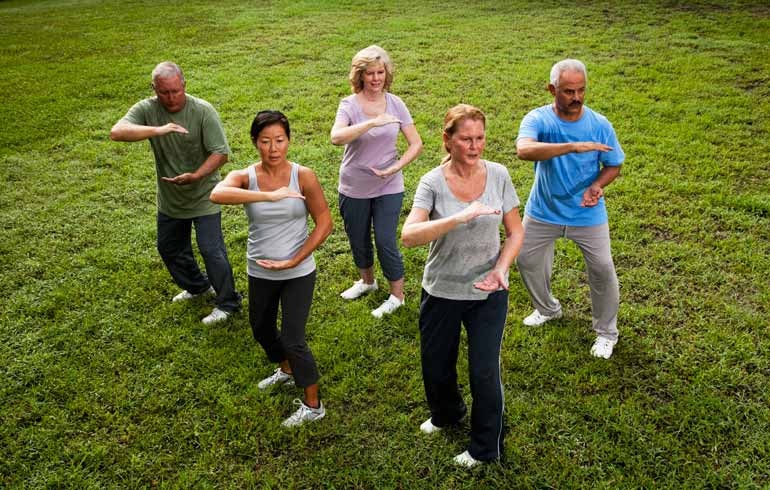
Tai Chi can be adapted to suit various health needs. It offers benefits for joint health, stress reduction, and mental well-being. You can tailor the movements to your comfort level and safety requirements.
Tai Chi for Arthritis and Joint Health
Tai Chi for arthritis is a gentle way to improve your joint health. The slow, flowing movements help increase flexibility and reduce stiffness. Depending on your comfort level, you can practice these exercises while sitting or standing. Try these simple moves:
- Arm Circles: Gently rotate your arms in small circles.
- Ankle Rotations: Slowly circle your ankles in both directions.
- Knee Bends: Slightly bend and straighten your knees.
These exercises can help lubricate your joints and increase your range of motion. Always move within your pain-free range and stop if you feel discomfort.
Stress Reduction and Mental Health Benefits
Tai Chi can greatly improve your mental well-being. The calm, focused nature of the practice helps reduce stress and anxiety. You may find yourself feeling more relaxed and centered after each session. Benefits of Tai Chi for mental health:
- Improved mood.
- Better sleep quality.
- Enhanced focus and concentration.
The meditative aspects of Tai Chi can also boost cognitive health. As you learn and remember the movements, your brain gets a workout.
Customizing Movements for Safety and Comfort
Your safety and comfort are top priorities when practicing Tai Chi. You can adjust the movements to fit your needs and abilities. Tips for safe practice:
- Start with shorter sessions and gradually increase the duration.
- Use a chair for support if needed.
- Wear comfortable, non-slip shoes.
Finding a qualified instructor for seniors is key. They can show you how to modify poses and ensure you use the proper form. Feel free to ask for help or clarification during class. Remember, Tai Chi is about gentle movement and balance. There’s no need to push yourself too hard. Listen to your body and move at a pace that feels right for you.
Here’s an additional video about Tai Chi.
By: Fitness With Cindy
Embracing the Journey: The Importance of a Qualified Tai Chi Instructor for Seniors
Finding a qualified Tai Chi instructor for seniors is crucial for those looking to embrace this ancient practice’s myriad benefits. With a knowledgeable instructor by your side, Tai Chi can significantly enhance balance, flexibility, and mental clarity while promoting overall well-being. A skilled instructor prioritizes safety and adapts movements to meet individual needs, creating a welcoming environment that fosters growth and confidence. This careful guidance ensures that seniors can enjoy the full spectrum of Tai Chi’s advantages without the risk of injury.
As seniors explore the world of Tai Chi, they embark on a journey that improves their physical health and cultivates a sense of community and mindfulness. With dedication and the right guidance, Tai Chi can transform into a cherished part of daily life, enriching the minds and bodies of seniors for years to come. By investing time in finding the right instructor, seniors can unlock a fulfilling practice that leads to greater vitality and tranquility in their everyday lives.
Frequently Asked Questions
What Qualifications Should a Tai Chi Instructor Have to Be Considered Suitable for Senior Students?
Look for instructors with specific training in teaching Tai Chi to older adults. They should have experience modifying moves for different ability levels. Certifications from reputable Tai Chi organizations are a good sign. Ask about their experience working with seniors and any special training they’ve had.
Are There Tai Chi Classes Designed Specifically for Beginners and Seniors?
Yes, many places offer Tai Chi classes just for seniors and beginners. These classes usually move at a slower pace and focus on gentle movements. Senior-friendly Tai Chi classes often include chairs for support and modify moves to accommodate different fitness levels.
Can I Access Tai Chi Classes for Seniors Without Any Cost, and if So, Where?
Free Tai Chi classes for seniors are sometimes available. Check with your local parks and recreation department or senior center. Some community health programs or hospitals may offer free or low-cost Tai Chi classes as part of their wellness initiatives.
Recharge Your Fitness Journey After 55!
Hello, fitness enthusiasts! Uncover the keys to vitality and wellness with Fit After 55! Whether you’re a fitness veteran or just beginning, our platform is your ultimate guide to holistic health. From setting achievable goals to celebrating milestones, we’re here to help you redefine what thriving after 55 truly means. Join our website and facebook page today and unlock your full potential with Fit After 55!

